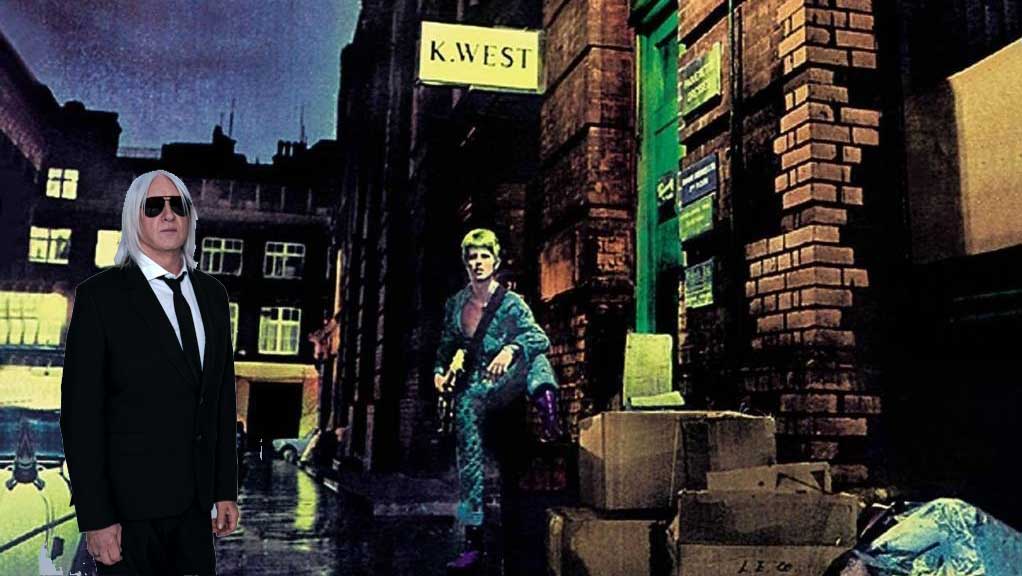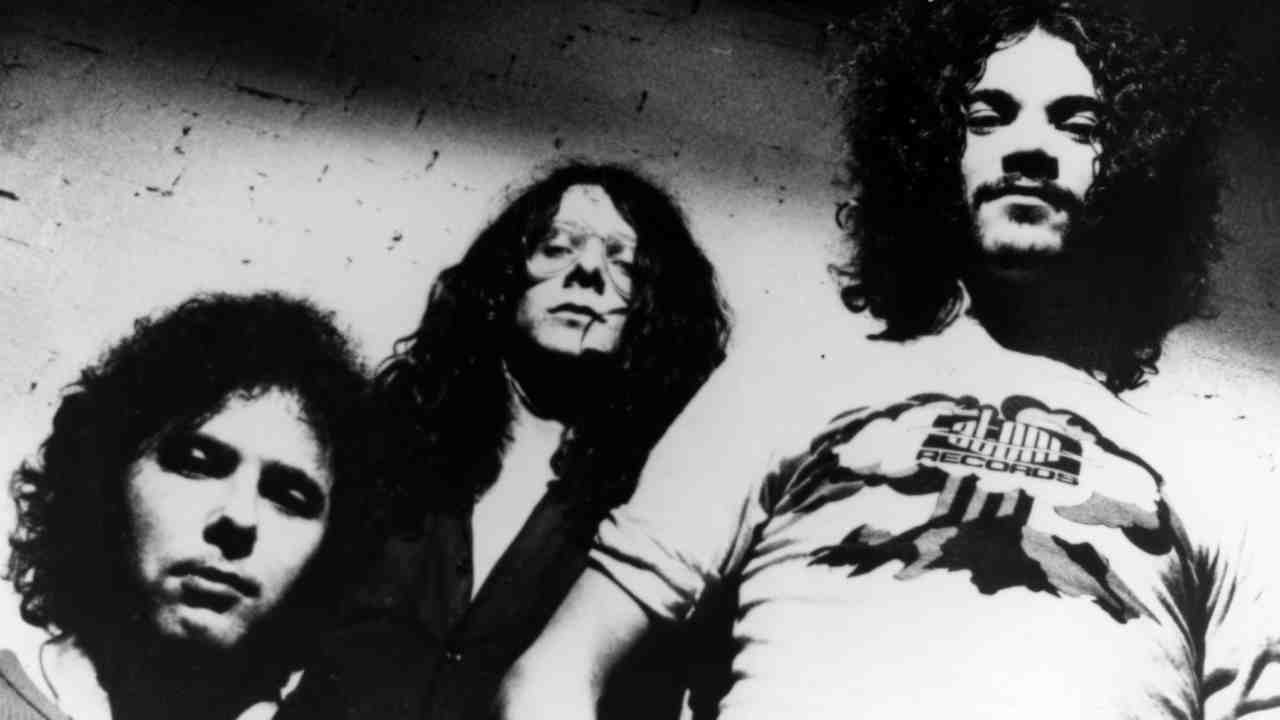Why I ❤️ Ziggy Stardust, by Def Leppard's Joe Elliott
Def Leppard singer Joe Elliott talks about the album that changed his life, David Bowie's The Rise And Fall Of Ziggy Stardust And The Spiders from Mars

Select the newsletters you’d like to receive. Then, add your email to sign up.
You are now subscribed
Your newsletter sign-up was successful
Want to add more newsletters?

Every Friday
Louder
Louder’s weekly newsletter is jam-packed with the team’s personal highlights from the last seven days, including features, breaking news, reviews and tons of juicy exclusives from the world of alternative music.

Every Friday
Classic Rock
The Classic Rock newsletter is an essential read for the discerning rock fan. Every week we bring you the news, reviews and the very best features and interviews from our extensive archive. Written by rock fans for rock fans.

Every Friday
Metal Hammer
For the last four decades Metal Hammer has been the world’s greatest metal magazine. Created by metalheads for metalheads, ‘Hammer takes you behind the scenes, closer to the action, and nearer to the bands that you love the most.

Every Friday
Prog
The Prog newsletter brings you the very best of Prog Magazine and our website, every Friday. We'll deliver you the very latest news from the Prog universe, informative features and archive material from Prog’s impressive vault.
It has been voted the seventh-best album of the 70s, the 20th best album of its millennium, the 40th best album of all time, and – most important of all – the 5th Best British Rock Album, by Classic Rock magazine. There’s no doubt about it, David Bowie’s The Rise And Fall Of Ziggy Stardust And The Spiders From Mars is an important piece of rock’n’roll’s heritage.
For Def Leppard’s Joe Elliott, it’s the second-best album of all time. All the others in his personal Top 20 come and go, but Ziggy never leaves.
“I’ll tell you three people who feel the same way about that album,” Elliott says. “There’s me, a screamy singer in a rock band; then there’s Boy George, the singer androgynous from Culture Club; then there’s Morrissey from The Smiths. I don’t think we’ve got anything else in common, but Ziggy… changed our lives.”
Elliott recounts a story which he believes is familiar to a lot of people of a similar vintage: 12 years old, lying on his back in bed, listening to Ziggy Stardust while holding the sleeve at arm’s length above his head, staring at Brian Ward’s photos on the record’s cover.
“It’s iconic – the ‘K. West’ sign, the phone box. Kids from Japan came over to have their photos taken under that sign. It doesn’t look like much thought or time went into taking those photos, but Ziggy looks like it sounds – and that doesn’t happen very often.”
In the cold light of history, it’s now a little too generic to label Ziggy a glam phenomenon. True, Bowie borrowed from the stylings of Marc Bolan, but this 1972 album was far more ambitious than anything Bolan attempted to achieve.
Bowie has spoken about wanting to write a Broadway show when he was younger, and about his fascination with labelmate Vince Taylor, an Elvis-alike who was more or less Britain’s first rock’n’roll star. Taylor wore leather, threw himself about the stage and had the girls swooning. Ultimately he lost himself within his act, and went mad and spent the rest of his life between prison and hospital. Bowie merged those two interests to come up with a Broadwayesque concept album and a Tayloresque flawed hero.
Sign up below to get the latest from Classic Rock, plus exclusive special offers, direct to your inbox!
The character Ziggy Stardust falls to earth five years before the end of the world. He becomes a superstar by dint of the truth of his music, and the world demands more and more from him. Eventually he disintegrates under the pressure of expectancy. Band-wise, the Spiders From Mars were Mick Ronson (guitar) Trevor Bolder (bass) and Woody Woodmansey (drums).
Ronson, who died in 1993, has been credited with getting the best out of Bowie during their time together. Bolder (later of Uriah Heep) and Woodmansey collaborated with Elliott and Def Leppard guitarist Phil Collen in a band called Cybernauts. Small world, eh?
“I’ve spoken to Trevor and Woody about the album,” Elliott says. “Bowie didn’t make them play anything specific, they got to do what they wanted. The whole album took five days. Just five days! And the thing is, he did it after Hunky Dory was in the can but before it was released [in December 1971].”
Which only underlines the remarkable achievement.
“When you’re 12 years old, a year is a long time,” Elliott continues. “In 1971 Bolan was everything to me. Then in 1972 Bowie put him into second place. Bolan had some great singles, but his albums weren’t all that strong; Ziggy was the strongest thing I’d ever heard.
“It has some very dark content – he was talking about our future; stuff we didn’t know about. Reginald Bosanquet was reading the news on television, but you couldn’t hear because you were listening to Ziggy in the next room. The miners’ strike, the fuel shortages, all the things that lay ahead – we didn’t know anything about them until Bowie told us. Having said that, it’s basically a positive album.
“But that running order is very strange. It starts with Five Years, a very negative song. It’s just not right, you’d want to start upbeat. I don’t know if he meant that, whether he didn’t know or care about the running order. But then again Bowie is so clever he may have meant it.
“The only thing on that album that might make it less than 10 out of 10 is It Ain’t Easy. Everything else is his own work, his own words, his own message, and suddenly you have a cover version. I don’t know why you would do that, especially when you had as many things to say as Bowie did.”
Asked to point out one lasting thing that he took from Ziggy, then and now, Elliott says it’s the concept of change: “The only two bands who have managed not to change through the years are AC/DC and Aerosmith. Okay, Aerosmith have changed a little bit, but on the whole those bands sound the same now as they did when they started.
"Everyone else changes: Sting by fractions of degrees every album, us [Leppard] by a certain amount. But with Bowie it was a minimum of 360 degrees every time. I like to think I’m an open-minded person, and that kind of change is important to embrace.”
The Ziggy era undoubtedly marked the highest point in a career littered with highs for Bowie. It was a time when his living art form transcended almost every boundary an art form can, making him a megastar, a fashion icon, an acknowledged genius and the father of a massive musical movement. Not bad for five days in the studio.
“Ziggy was an incredibly cheap album, but an incredibly important one,” Elliott sums up. “Next time they send one of those things into space, Ziggy should be on it, not Chuck Berry – anyone but Chuck Berry."
Def Leppard's album Diamond Star Halos is out now.
Not only is one-time online news editor Martin an established rock journalist and drummer, but he’s also penned several books on music history, including SAHB Story: The Tale of the Sensational Alex Harvey Band, a band he once managed, and the best-selling Apollo Memories about the history of the legendary and infamous Glasgow Apollo. Martin has written for Classic Rock and Prog and at one time had written more articles for Louder than anyone else (we think he's second now). He’s appeared on TV and when not delving intro all things music, can be found travelling along the UK’s vast canal network.
